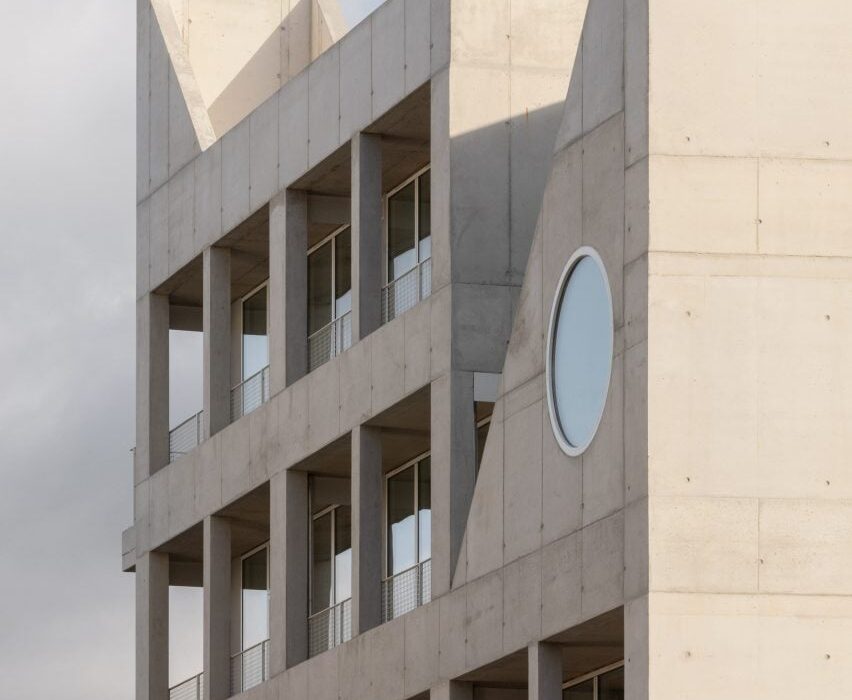RIBA unveils 2023 Stirling Prize shortlist
The Royal Institute of British Architects has revealed the six-strong shortlist for the 2023 Stirling Prize, which is dominated by projects in London.
Three of the buildings vying for the coveted award, which is given annually to the UK’s best new building, are housing projects in London by studios Apparata, Sergison Bates and Adam Khan Architects.
This is a reflection of what the Royal Institute of British Architects (RIBA) president Muyiwa Oki said is a shortlist of community-focused and “purposeful architecture”.
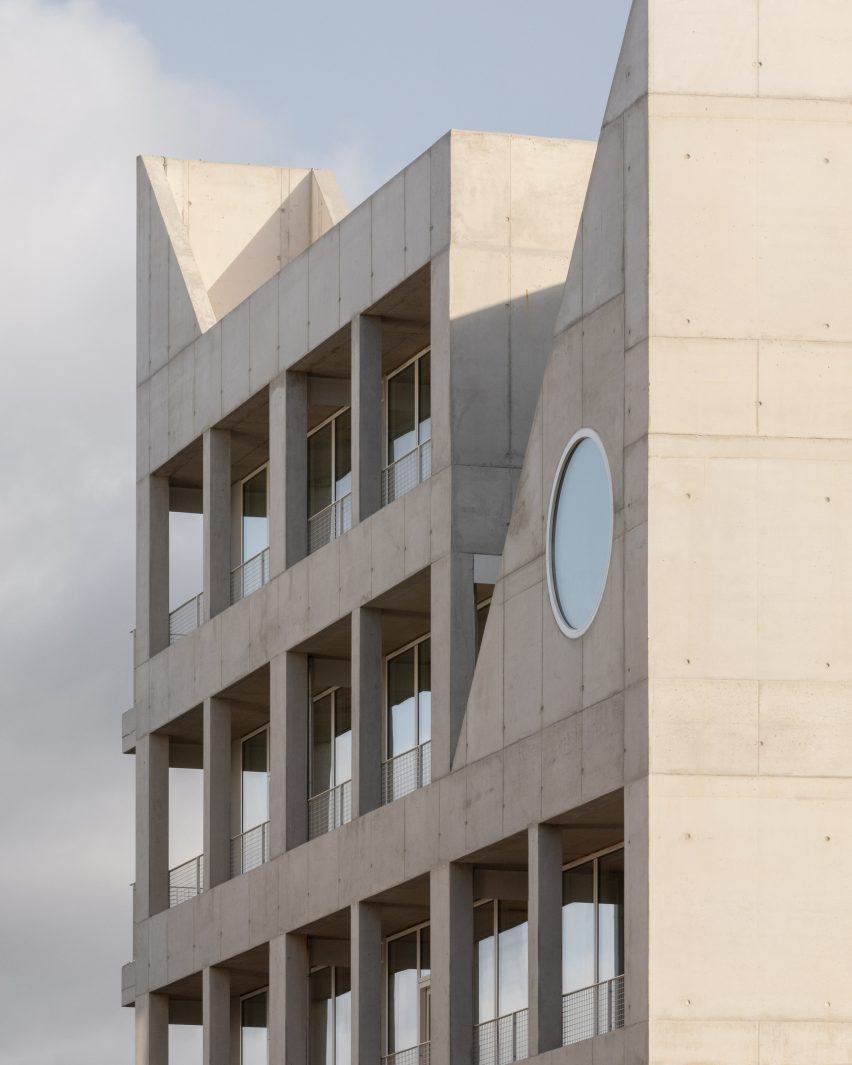
“The 2023 Stirling Prize shortlist illustrates why architecture matters to all of us,” said Oki.
“These six remarkable buildings offer thoughtful, creative responses to the really complex challenges we’re facing today. Whether it’s tackling loneliness, building communities, or preserving our heritage, these projects lay out bold blueprints for purposeful architecture.”
The residential projects on the list include A House for Artists, an affordable housing scheme by Apparata that was aimed specifically at creatives, and Lavender Hill Courtyard Housing, an infill project by Sergison Bates at a former sheet-metal workshop in Clapham.
A social housing block designed by Adam Khan Architects as part of the Central Somers Town masterplan in Camden is the third.
This project was animated by matching arch motifs, matching an adjoining children’s community centre that also forms a part of the project.
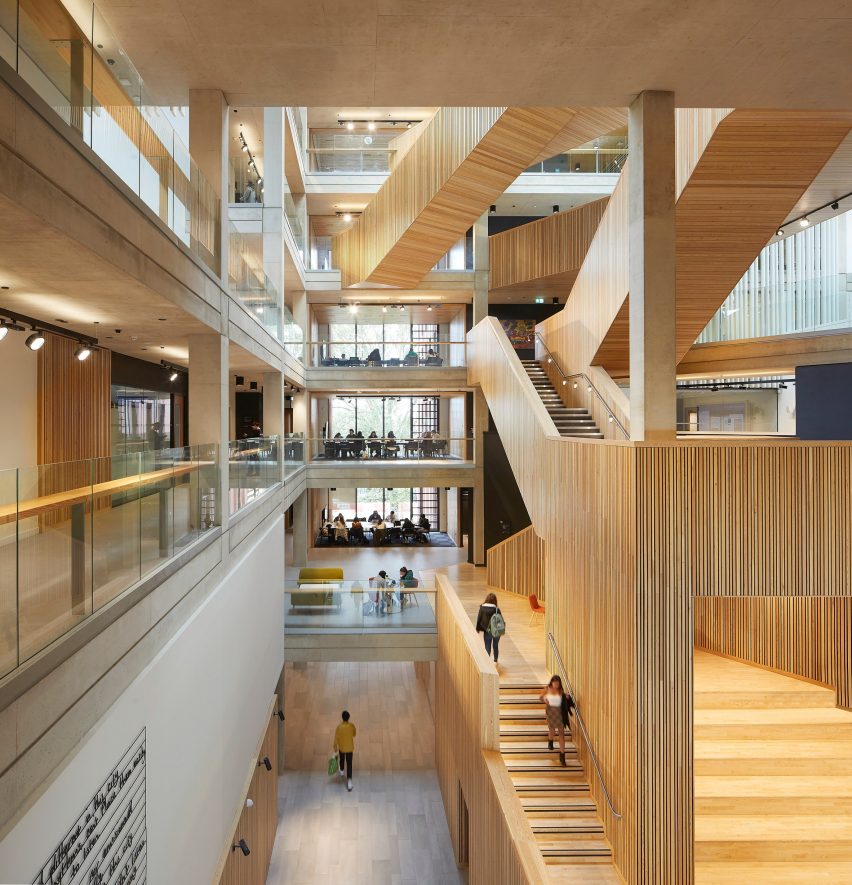
Two other buildings on the list that are also in London are Courtauld Connects by Witherford Watson Mann Architects and the John Morden Centre by Mae.
Courtauld Connects is a renovated gallery at Somerset House, while the John Morden Centre is a daycare centre for a retirement community in Blackheath.
The only building on the shortlist that is not in London is the Faculty of Arts for Warwick University designed by Feilden Clegg Bradley Studios for a site in Coventry.
This university building brings together its arts departments under one roof and is formed of interconnected pavilions that draw on the surrounding nature.
Feilden Clegg Bradley Studios and Witherford Watson Mann Architects are the only studios on the list to have previously won the Stirling Prize, though Mae also made the shortlist in 2022.
Feilden Clegg Bradley Studios won in 2008 for the Accordia housing in Cambridge, which it created alongside Alison Brooks Architects and Maccreanor Lavington, while Witherford Watson Mann Architects was named winner in 2013 for Astley Castle in Warwickshire.
Last year’s recipient of the award, which is the most significant in UK architecture, was a brick and timber library that Niall McLaughlin Architects created for the University of Cambridge.
The winner of the 2023 RIBA Stirling Prize will be revealed on 19 October at a ceremony in Manchester. It will be selected by a jury headed up by OMA partner Ellen van Loon.
Read on for edited comments from the 2023 Stirling Prize jury:
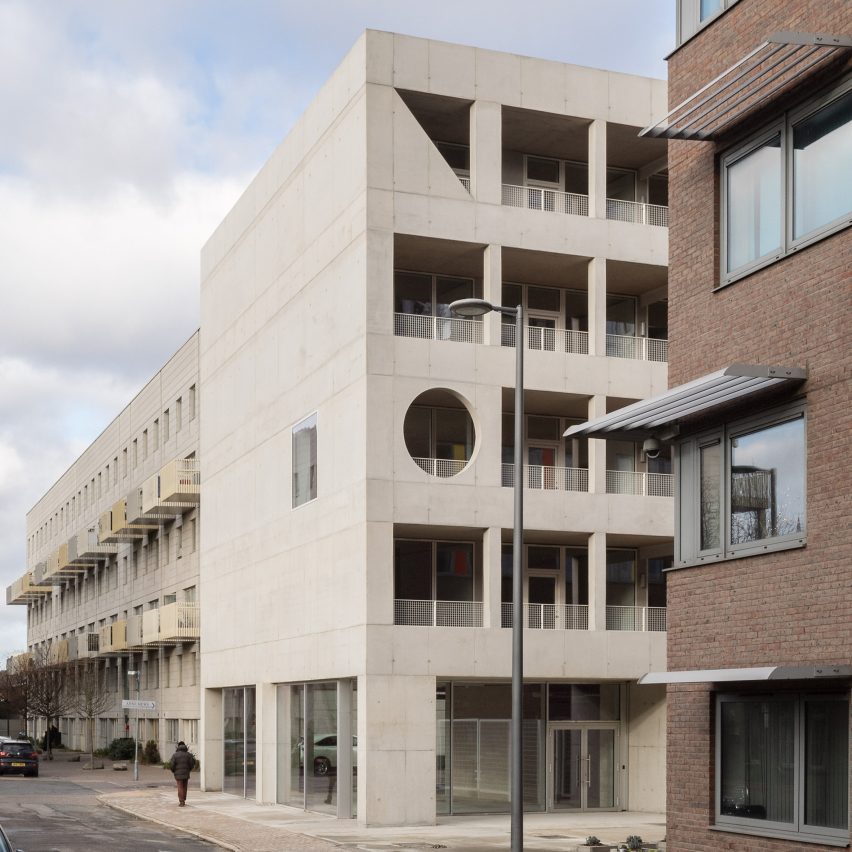
A House for Artists, Barking, by Apparata
“A House for Artists provides an ambitious model for affordable and sustainable housing.
“Following a six-year effort by arts organisation Create London to provide affordable accommodation for creative people, the result is a flexible live-work space for 12 artists arranged across five floors.
“In exchange for reduced rent, they deliver free creative programmes for the neighbourhood through a street-facing glass-walled community hall and outdoor exhibition space on the ground floor.
“This is a thoughtful and assured piece of architecture that has been delivered with rigour and precision.”
Find out more about A House for Artists ›
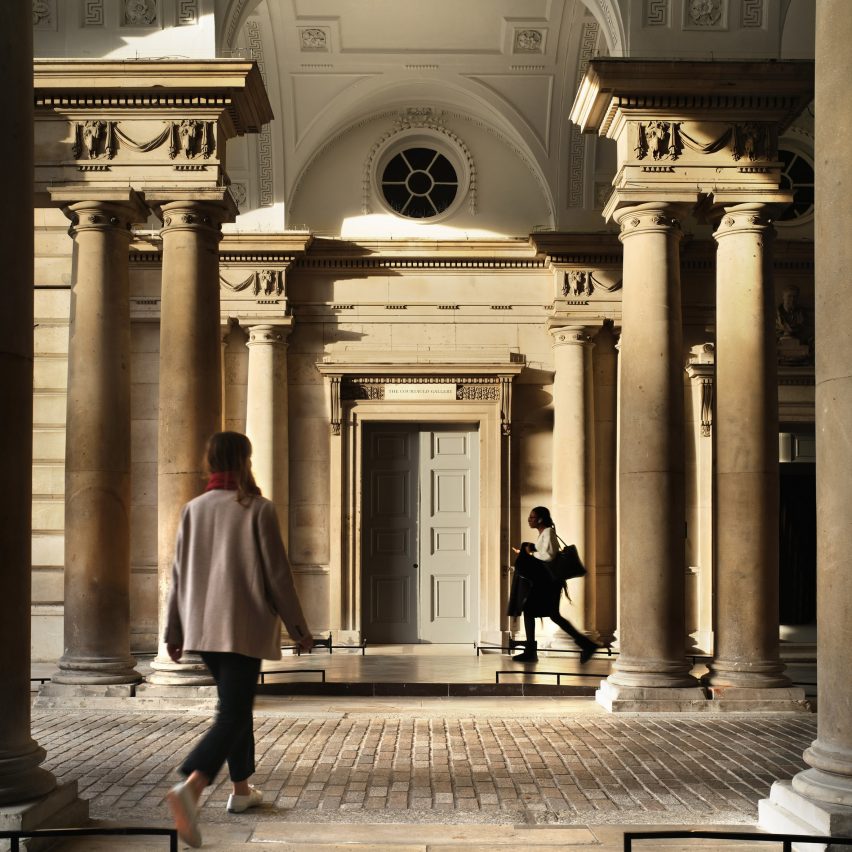
Courtauld Connects, Westminster, by Witherford Watson Mann Architects
“The transformation of the Courtauld Gallery in its home at Somerset House, London is the first part of a multi-phase project that aims to open up the institution both physically and culturally.
“The three main moves that transform the gallery are the insertion of a lift, the reworking of the entrance sequence, including a beautiful new stair down to the basement visitor facilities, and relevelling and opening up the vaults below the entrance to provide a flowing, level space.
“Overall, the jury thought that this was an extremely well-judged project, which lets the spirit of the historic building lead the visitor experience, but with some 21st-century creativity to solve some of its inherent complexities.”
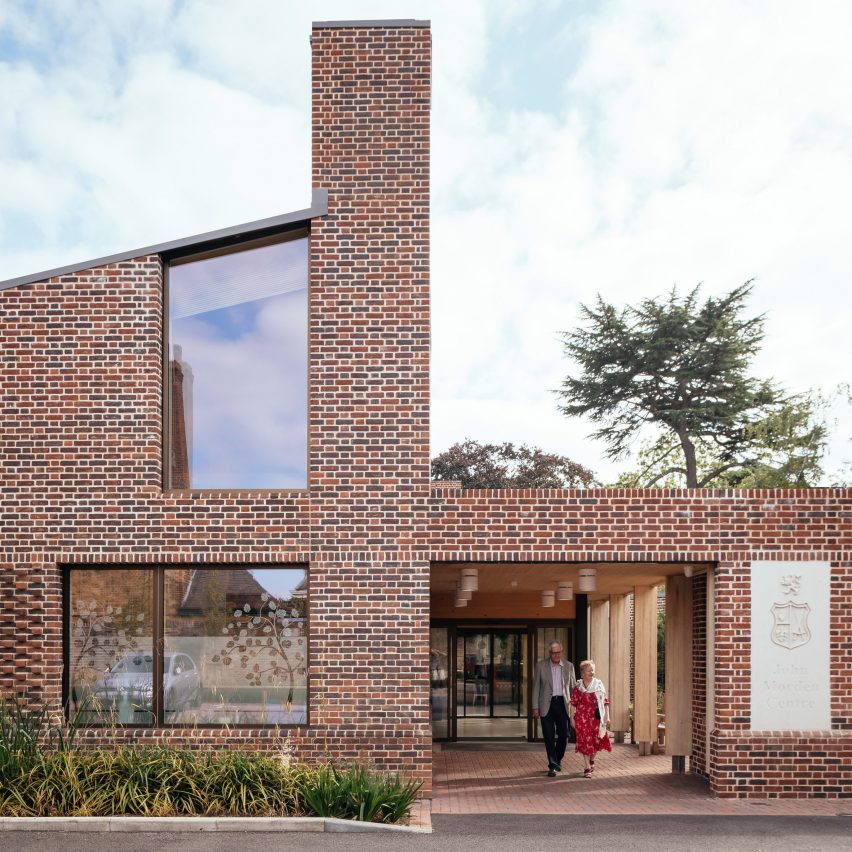
John Morden Centre, Blackheath, by Mae
“Founded in 1695, Morden College is a charity dedicated to providing older people in need with a home for life, including the provision of residential and nursing care. Residents live on the Grade I-listed college site in Blackheath, which is attributed to English architect Sir Christopher Wren.
“The John Morden Centre is a daycare centre housing social and medical facilities for all residents. The brief was to bring functions from across the college, including a medical centre, cafe, lounges and administrative offices, into a single building.
“The project provides a delightful set of meandering spaces, which expertly combines recreational and more tricky medical facilities without feeling institutional.
“Such stimulating spaces are vital to conquer loneliness and isolation. It is beautifully yet robustly detailed and should be a joy to use for years to come.”
Find out more about John Morden Centre ›
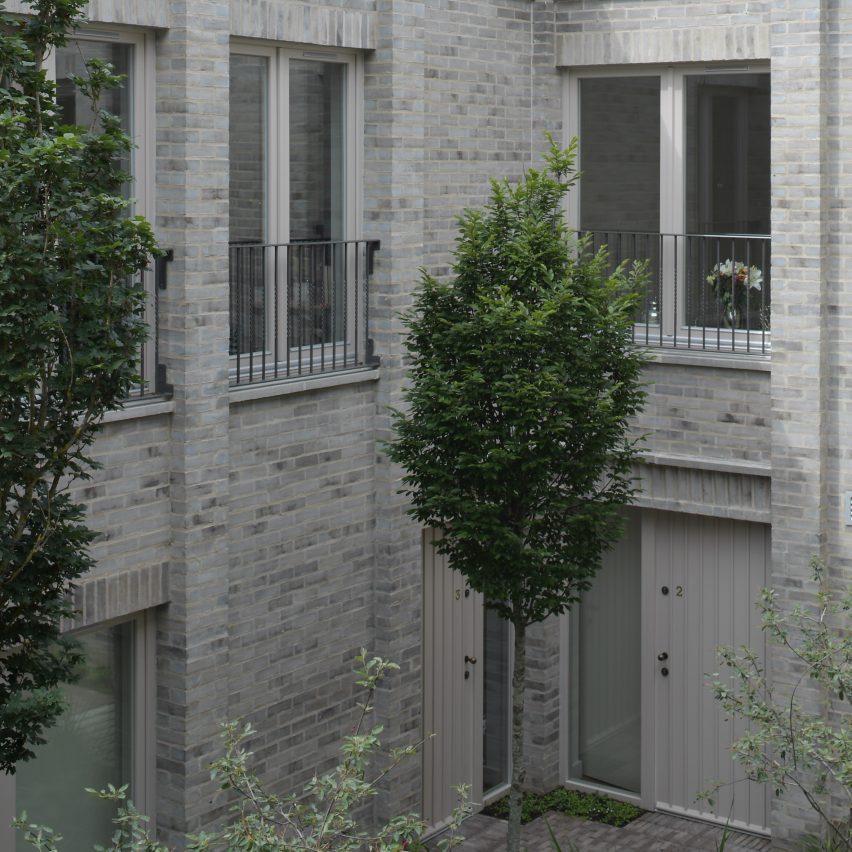
Lavender Hill Courtyard Housing, Clapham, by Sergison Bates
“Tucked away down a timber-lined passageway, barely visible at the end of a Clapham mews, Lavender Hill Courtyard sees the redevelopment of a former sheet-metal workshop into nine apartments of various sizes, arranged around a courtyard space and a timber-decked terrace on the first floor.
“The judges were impressed by the project’s success at inserting a dense development into a very constrained site. The unassuming entrance to the site opens up into the welcoming courtyard that is accessible to all units and creates a sheltered communal space and sense of privacy amongst the busy surroundings.”
Find out more about Lavender Hill Courtyard Housing ›
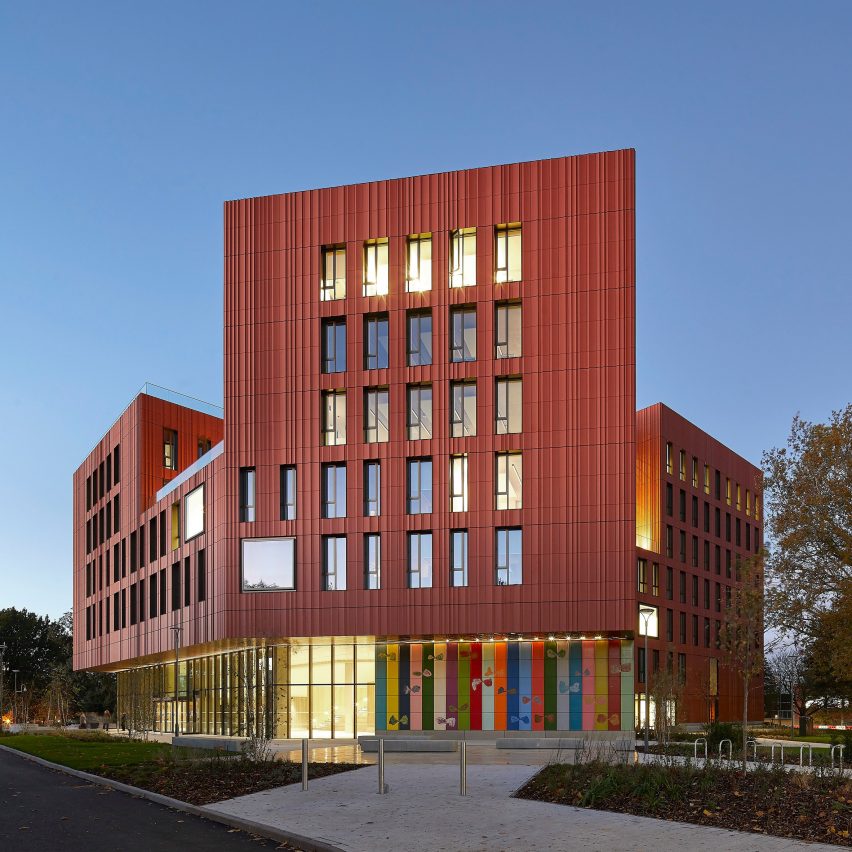
University of Warwick Faculty of Arts, Coventry, by Feilden Clegg Bradley Studios
“The impressive new Faculty of Arts building for the University of Warwick brings together the departments and schools of the faculty under a single roof for the first time.
“The building itself is shaped by the surrounding trees that define the parkland character of the site. This is achieved through four pavilion buildings connected by a lightweight atrium and sculptural timber larch stair.
“The combination of the client’s ambitions to create a new model of working for the faculty, and the architect’s creativity in articulating this ambition through a holistic design approach, has resulted in a building that is both inviting and flexible, enabling collaboration, creativity, and innovation.”
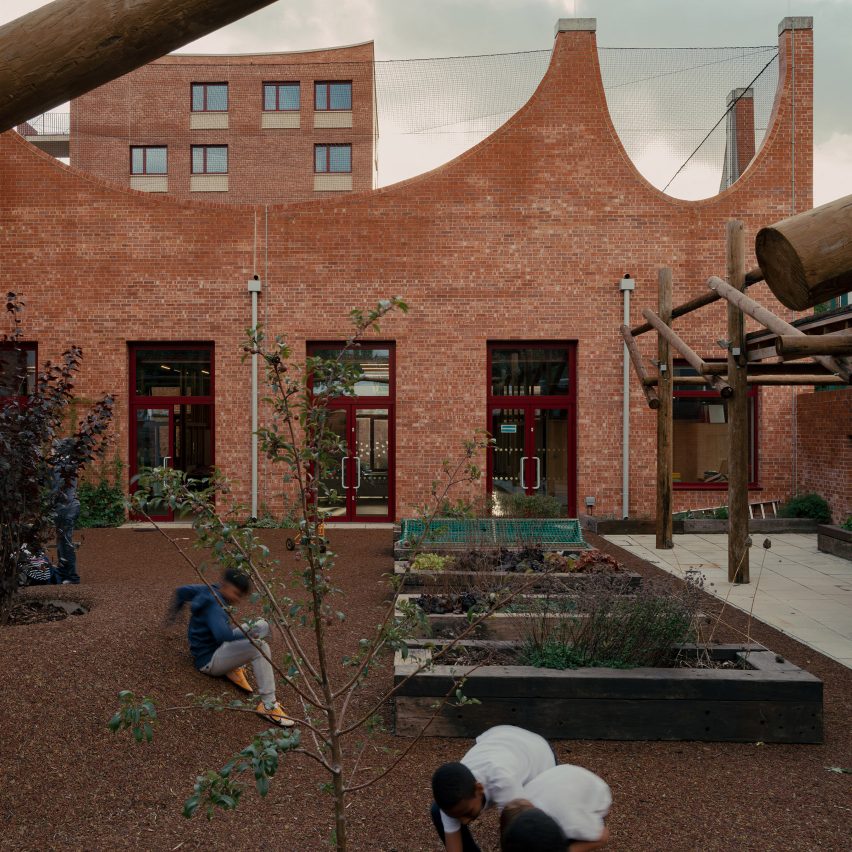
Central Somers Town Community Facilities and Housing, Camden, by Adam Khan Architects
“Central Somers Town Community Facilities and Housing are part of a larger masterplan commissioned by the London Borough of Camden for an extensive area within the very deprived Central London neighbourhood of Somers Town, adjacent to St Pancras station.
“Adam Khan Architects was assigned Plot no.10 and asked to design and supervise the construction of a flexible community children’s facility as well as that of several housing units for social rent.
“The jury commended the Central Somers Town Community Facilities and Housing as a key community asset which is a marked improvement on the previous facility on the site.”
Find out more about Central Somers Town Community Facilities and Housing ›

